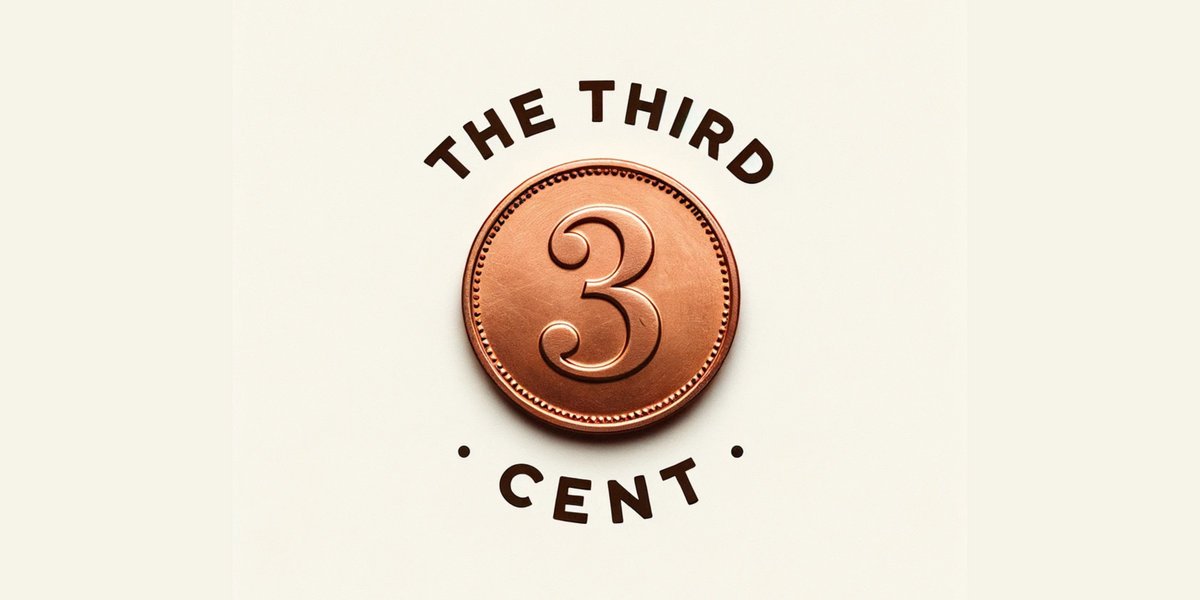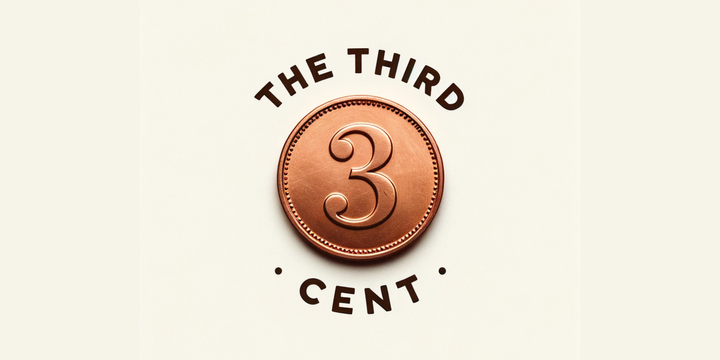The Value of Conflict

Introduction
The world often appears to be in a perpetual state of conflict. We are just witnessing the Israel and Palestine conflict unfold. A war continues between Ukraine and Russia. More than a dozen countries are currently engaged in high-level discussions addressing border disputes, rights to rivers that cross boundaries, and pressing issues like immigration, cultural appropriation, terrorism, and pollution. Regardless of what point in history we look at, we’d notice that conflicts are omnipresent. While we will need to debate on whether the actual number of conflicts has increased or the media exposure merely intensifies our perception of them, I am sure we all agree that conflicts are not something we look forward to.
In our pursuit of peace, we frequently shy away from conflict, adopting an ostrich-like approach. This is totally understandable. The mere utterance of the word ‘conflict’ evokes images of fiery debates, emotional upheavals, and inevitable sorrow. Why, then, would we want to talk about them? Is it not better to avoid them entirely? Is this avoidance not the secret to survival? There seems to be some merit to this perspective. After all, the dinosaurs, which confronted the asteroid's impact, perished, while other creatures, like the ancestors of mammals and insects, sought refuge and managed to survive. It's evident then: conflicts are detrimental. Or are they?
While the downsides of conflict are undeniable, it's crucial to understand that they are an intrinsic facet of our existence. They hold immense value, and if one were to use them to their advantage, conflicts can serve as powerful catalysts. In this issue of the newsletter, I want to talk about the value of conflict and how one could use conflicts as a tool for learning. But then, before we discuss how to do that, it’s important to understand what exactly a conflict is and the ways of understanding it.
Defining Conflict
While the English dictionary describes conflict as "a disagreement arising from differing opinions or desires," this definition merely scratches the surface. Such an explanation is external, looking at conflict from the outside. However, if we delve deeper and approach conflict from an internal perspective, it can be seen as the boundary where our comfort zones end and avenues for new insights commence. Indeed, our educational journey is essentially a deliberate creation of conflicts to foster learning. Through this lens, conflicts aren't just disagreements but mirrors reflecting our core values, beliefs, and aspirations. They reveal our vulnerabilities, hopes, and trepidations. Although they may be challenging, conflicts offer opportunities for introspection, paving the way for personal growth and transformation.
Just as light casts shadows, conflicts emerge from our thoughts, emotions, and beliefs. Therefore, understanding them can help us propel ourselves beyond the domains of the known and help us truly understand our strengths and weaknesses.
Dr. Prafulla Agnihotri, my guide, frequently advises me to "throw the ball in their (the stakeholders’) court," especially when faced with complex decisions. Initially, I perceived this as his unique managerial approach towards me. Given my perpetual self-critique, whether in research, teaching, or other projects, I've habitually refrained from submitting my work for peer review or proposing my solutions to a larger audience. Such reticence has shielded me within my comfort zone, depriving me of valuable feedback and opportunities for growth. Over time, I've recognized that Dr. Agnihotri's advice embodies a deeper philosophical perspective, emphasizing the importance of directly addressing conflicts. Yes. It’s true that I might be wrong most of the time, but then, by “throwing the ball in their court,” I know the truth. And by knowing the truth, we understand the boundaries of our comfort zone and learn to either transform ourselves or become obsolete.
Using conflict in Education
As discussed previously, conflicts can help us understand our limits and work on improving ourselves. But that sounds like a lot of Gyan without giving any actionable suggestions. Is there something actionable that you can take away from all of this? I thought it would be a good idea to list down some ideas that you can use to make yourself uncomfortable and consequently learn.
Debates
Debates are structured forms of discourse that allow participants to delve into conflicts by presenting opposing viewpoints on a particular topic. Debates can shed light on conflicts in ideas, beliefs, and values. By providing a platform where contrasting perspectives are voiced, debated, and defended, they foster critical thinking and analytical skills. Debaters are often compelled to research extensively, ensuring they not only understand their stance but also anticipate counterarguments. This rigorous preparation deepens their grasp of the subject.
You’d be surprised to learn how so many great teachers used debates as a part of their teaching methods. Almost all of the great philosophical works from ancient Greece and India appear as debates. This includes works of Aristotle, Plato and even the Mahabharata. More recently, in physical Resnik and Halliday used debates as the primary mode of instruction in Physics. You are already familiar with the case study method that we use in our class rooms. They are also an extension of this type of thinking. So, if you are a student who is interested in using conflict to improve learning, you should look for those with different views and try to grapple with key ideas.
Travel
Travel allows us to experience whole new worlds - new cultures, new languages, foods, perspectives and ideas. Encountering customs, traditions, or behaviors that are different from one's own culture can be surprising or even shocking. Navigating language barriers can improve non-verbal communication skills, patience, and adaptability. You may also see a marked difference in your active listening and observation skills. Additionally, travel also hones problem-solving skills, encourages resourcefulness, and builds confidence in handling unexpected situations.
For those of us who cannot travel as much, college campuses can become a close enough proxy. With thousands of minds from varied spaces, campuses have historically been locales where people ideated, discussed, listened, and built. As you all move out of the campuses (I’m afraid this is going to happen very soon), you will find that you gravitate towards peers and have little or no conflicts. This is perhaps why people constantly keep telling me that their college was the best part of their lives. So make great use of it.
Read
You should take some effort to intentionally read materials that challenge your current beliefs or understanding. One way to do this is to engage with the great debates that happened in the field. For researchers, this would be something along the lines of the Kuhn vs Popper debates. This intellectual conflict can be a catalyst for deeper introspection and understanding.
This helps us critically analyze and reconcile differing viewpoints instead of passively accepting information. There is one more reason why this is important. Today, we live in a digital age somewhere in an echo chamber. Like it or not, algorithms end up showing us content that aligns with our existing beliefs. This can be somewhat crippling and can make us deaf to the views and emotions of others. Diversifying reading material breaks this cycle, exposing readers to a wider spectrum of opinions and facts and preventing confirmation bias. This can also go a long way in fostering empathy and developing a broader understanding of global issues, even if one doesn't necessarily agree with all the viewpoints presented.
Failures in conflicts
Now I understand that the more you enter into conflicts, the more it will expose you to losing in a conflict. So what would you do then? Well, if there was a definitive answer, I would be the happiest, but there are a few things you can consider:
One of the reasons that you might have lost in a conflict could be because you were not informed or prepared enough to enter into the conflict. If that is the case then you can take it as a challenge and delve deeper into your material.
Another reason could be that the new idea, thought, or belief is directly challenging the 'Bottom of Your Belief Iceberg'. These are very difficult cases because accepting the new information is very difficult, and it will end up changing a small part of your thought process. If that is the scenario, you can take a step back and think about it. Talking to more people who have a similar thought process as the one you find new helps more, and then you can take a call about whether you want to go ahead with it or not.
The whole idea is to get the best out of any conflict that you face, especially if you feel that you have lost, although most of the time when you feel that you have lost, you are actually just experiencing some friction with your current thought process, a barrier that you just can't move easily. So don't feel dejected; use it as a tool to learn and carry on!
Conclusion
Over the last few pages, we delved into conflicts and their intrinsic value. It's become evident that every conflict delineates the perimeter of our comfort zone, nudging us towards the unknown and potentially transformative experiences. While our focus was primarily on the role of conflicts in education, I believe this discussion is paramount for several reasons.
As an emerging faculty member at the outset of what promises to be a long teaching journey, I've observed that recent technological advancements in education often lull us into a state of complacency. Consider this: the pursuit of information no longer involves sifting through stacks of encyclopedias or reference materials. A few simple clicks suffice. Platforms like Google have simplified the search process, while tools like ChatGPT enable effortless content consumption. Just recently, during a lecture, I noticed a student copy-pasting content from a recommended article into ChatGPT, only to request a summary. While this approach might be efficient for a quick overview, it certainly isn't conducive to genuine learning.
In an era brimming with technological conveniences, it's crucial to distinguish between efficiency and depth of understanding. While tools like ChatGPT offer quick insights, they should complement, not replace, the immersive process of learning. Our journey through conflicts has underscored the importance of challenging ourselves, of venturing beyond the familiar, and of truly engaging with material. As educators and learners, it's our responsibility to harness technology as an aid, not a crutch. This is perhaps why facilitators are providing more challenging assignments and expecting a deeper understanding of the concepts. In other words, I feel we go the extra mile in creating conflicts for you to ensure that you learn. While some are happy to embrace this conflict, there are many who feel this is needless. The value of conflicts, as we've seen, lies in their ability to push us beyond surface-level engagement. I’m not sure about everyone, but I am certain that the world out there requires you to be at your very best for you to shine. As we navigate the evolving landscape of education, let's commit to fostering a culture of deep, critical thinking, ensuring that the essence of learning isn't overshadowed by the allure of shortcuts. In doing so, we not only uphold the sanctity of education but also equip ourselves and our students with the tools to navigate the complexities of our rapidly changing world.



